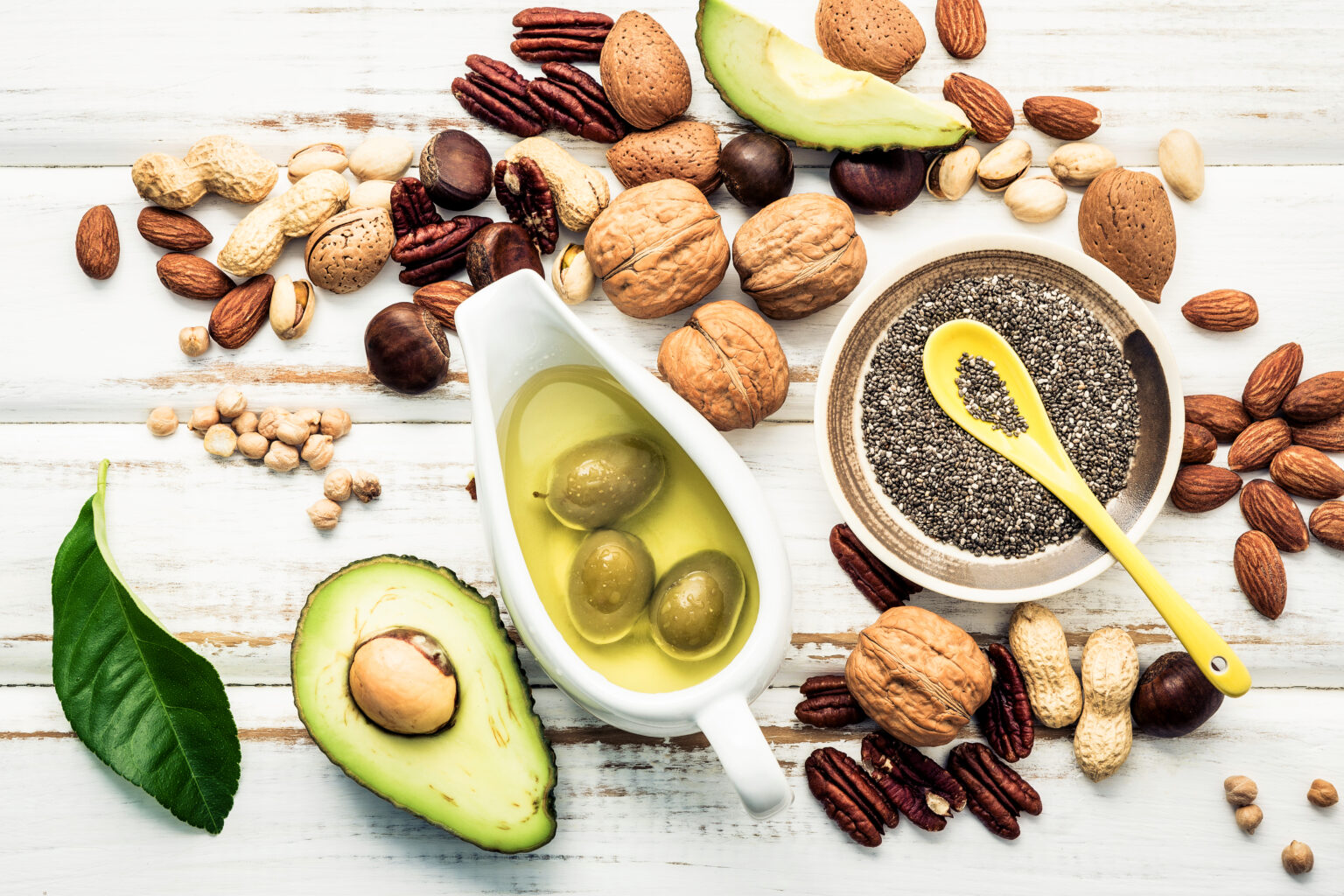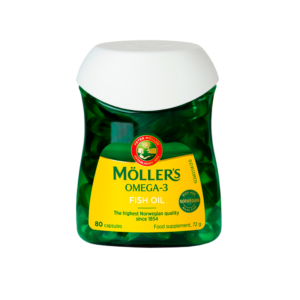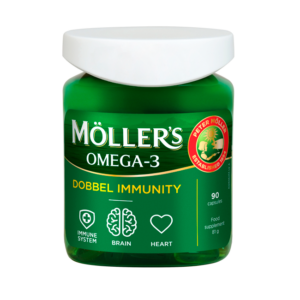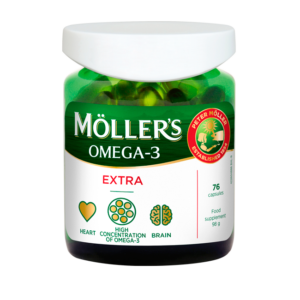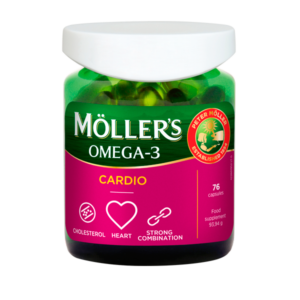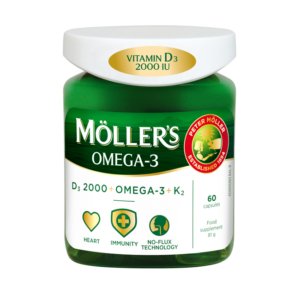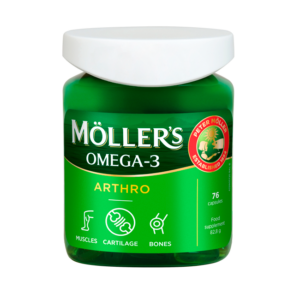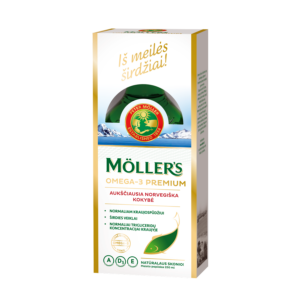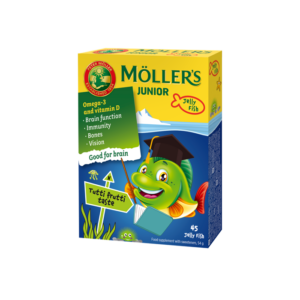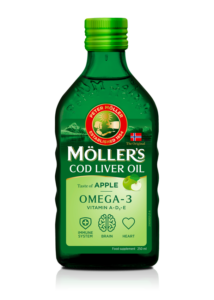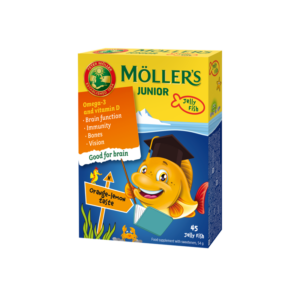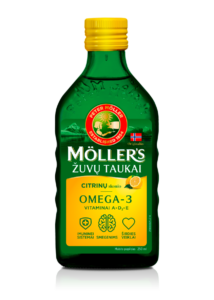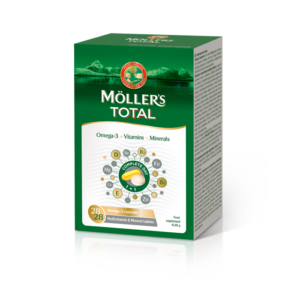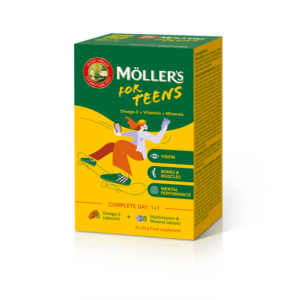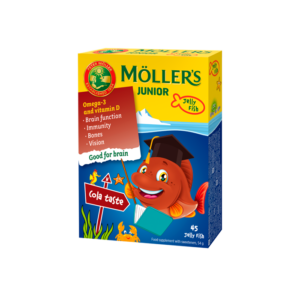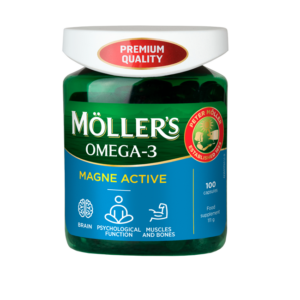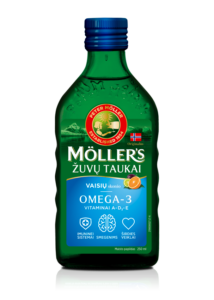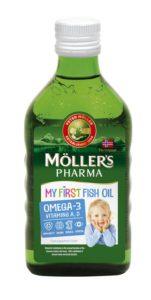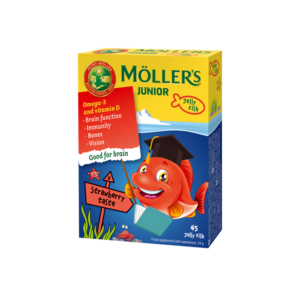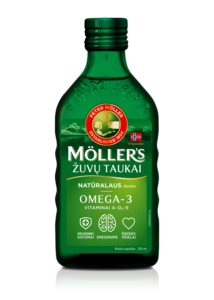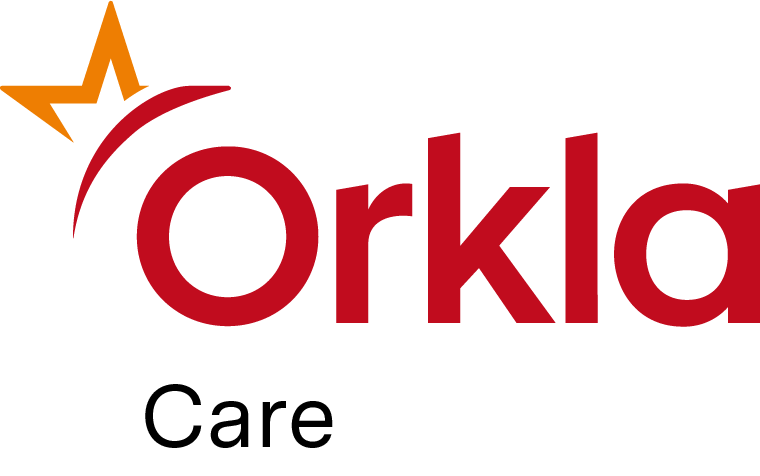Po dvejų gyvenimo metų smegenų tūris didėja dėl naujų ryšių – sinapsių – tarp smegenų ląstelių formavimosi, bet naujos smegenų ląstelės nebesigamina. Dėl spartaus sinapsių augimo 380 g sveriančios naujagimio smegenys iki dvejų metų amžiaus pasiekia 1,1 kg. Suaugusio žmogaus smegenys sveria apie 1,3 kg (1), didelę dalį išsivysčiusių smegenų sudaro riebalai.
Smegenys yra unikalios tuo, kad iš maisto sugeba pasisavinti omega-3 riebalų rūgšties DHR. Tai gausiausia omega-3 riebalų rūgštis žmogaus smegenyse, jos kiekis didėja smegenims vystantis ir augant ir mažėja mums senstant, DHR smegenyse įtakoja nervinio impulso signalo perdavimo greitį, tarpląstelinių junginių formavimąsi.
Tyrimai patvirtina ryšį tarp motinos suvartojamo DHR kiekio ir normalaus kūdikio smegenų vystymosi**. Svarbu užtikrinti gerą gyvenimo pradžią, kad vaikui augant būtų lengviau susidoroti su mažais ir dideliais uždaviniais mokykloje bei namuose.
Omega-3 riebalų rūgščių šaltinis yra maistas, nes žmogaus organizmas pats jų negamina. „Möller’s“ žuvų taukuose taip pat yra didelis DHR riebalų rūgšties kiekis, gaunamas iš šviežios žuvies.
Arbatiniame šaukštelyje „Möller’s“ žuvų taukų yra daugiau nei gramas omega-3. Toks dienos kiekis rekomenduojamas šiaurės šalių gyventojų mityboje. Vaikams ir suaugusiesiems, kurie nemėgsta menkių kepenų aliejaus, omega-3 kramtomos žuvelės arba kapsulės gali būti tinkama alternatyva.
* Teigiamas poveikis pasireiškia per parą suvartojant 250 mg DHR.
** DHR, motinai ją vartojant, yra naudinga normaliam vaisiaus ir žindomų kūdikių smegenų vystymuisi. Teigiamas poveikis atsiranda per parą suvartojant 200 mg DHR kartu su suaugusiesiems rekomenduojamu suvartoti per parą omega–3 riebalų rūgščių kiekiu, t. y. 250 mg DHR ir EPR.
(1) https: //faculty.washington.edu/chudler/dev.html
